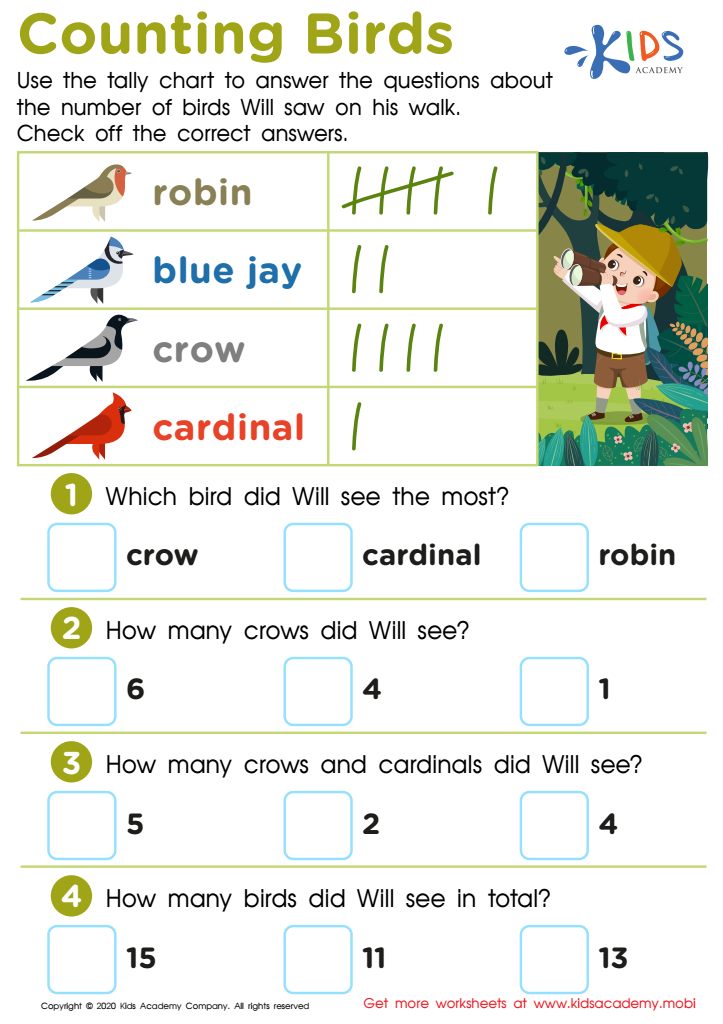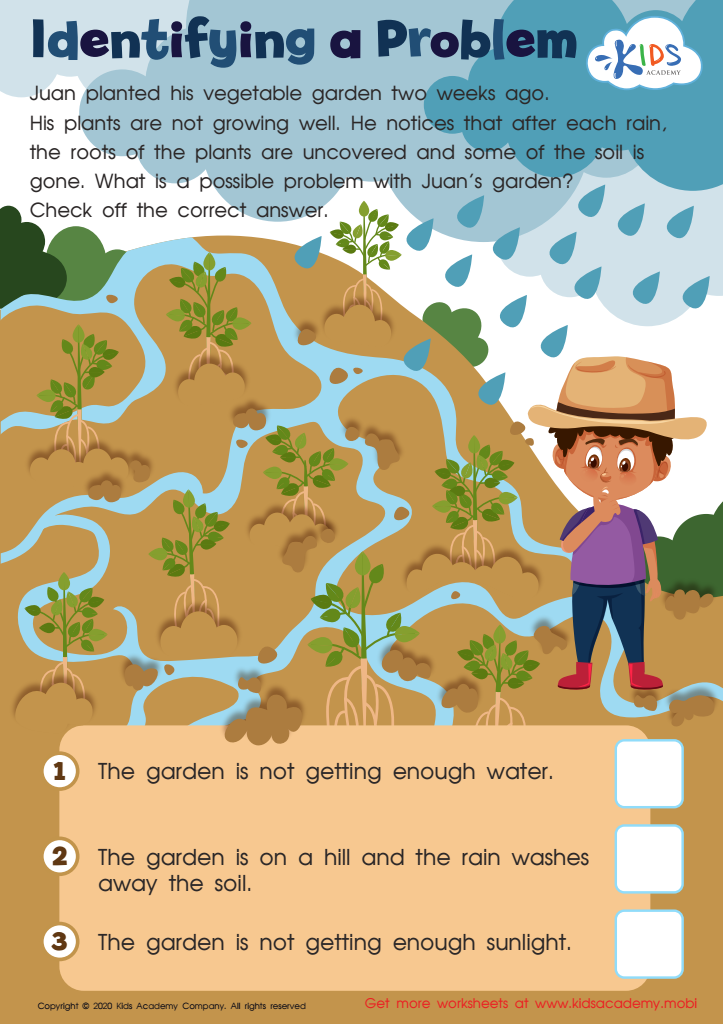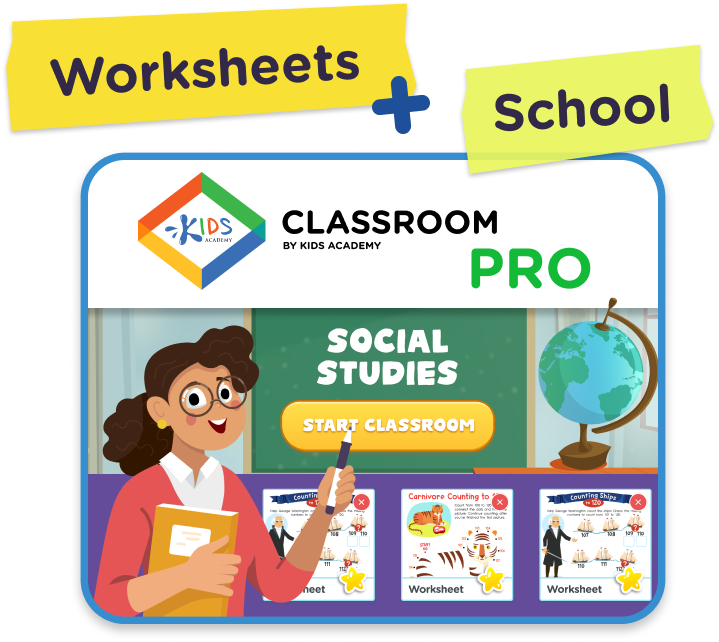Problem Solving Worksheets for Ages 6-9
8 filtered results
-
From - To
Discover our engaging Problem Solving Worksheets specifically designed for children aged 6-9. These resources help young learners develop critical thinking and analytical skills while enjoying fun activities. Our worksheets cover a range of scenarios that challenge kids to find solutions, make decisions, and enhance their creativity. With vibrant visuals and age-appropriate tasks, these worksheets encourage exploration and curiosity in various subjects such as math and science. Perfect for classroom use or home learning, our Problem Solving Worksheets provide a supportive environment for children to grow their problem-solving abilities. Empower your child's learning today with these valuable educational tools!


Gathering Information About the Weather Worksheet


Counting Birds Worksheet


Identifying a Problem Worksheet


Comparing Solutions Worksheet


Beaver Pond: Comparing Solutions Worksheet


Pond Trouble Worksheet


Beaver Pond: Looking for a Solution Worksheet


Developing Solution Worksheet
Problem-solving skills are crucial for children aged 6-9, serving as the foundation for their cognitive and social development. At this age, children transition from concrete to more abstract thinking, enhancing their ability to tackle everyday challenges. Encouraging problem-solving nurtures critical thinking, creativity, and resilience, all essential traits for lifelong learning.
Parents and teachers play a vital role in fostering these skills. By presenting opportunities for problem-solving in everyday situations, whether through puzzles, educational games, or real-life problems, they can stimulate children’s minds. This engagement not only boosts their confidence but also encourages collaboration when working in groups.
Furthermore, leveraging problem-solving skills helps children navigate conflicts with peers, promoting emotional intelligence and empathy. This is particularly important as they learn to interact with others more independently. Engaging in problem-solving tasks aids in developing patience and perseverance, as children learn to approach challenges systematically rather than giving up.
In summary, investing in problem-solving skills during this formative age equips children with tools for academic success, emotional well-being, and effective social interactions. By prioritizing these skills, parents and teachers can significantly influence a child’s ability to thrive in school and beyond.
 Assign to My Students
Assign to My Students















